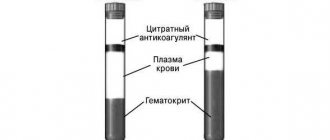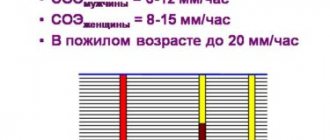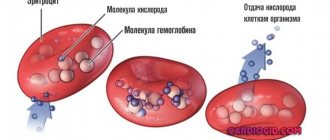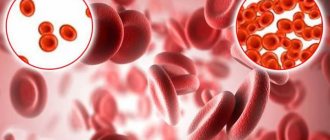Causes of dizziness at normal blood pressure
If the tonometer readings remain within normal limits, and the person experiences dizziness, then this may be due to reasons such as:
- Diseases of the cervical spine. Hernias, vertebral displacement and osteochondrosis can provoke an attack of dizziness. In this case, the blood vessels that supply the brain are impaired, and the brain does not receive enough blood, which affects the patient’s well-being. Spinal diseases are always accompanied by characteristic pain, since in addition to blood vessels, nerve fibers are affected.
- Inflammatory processes localized in the structures of the ear. This includes otitis media and damage to the eardrum. Inflammatory diseases of the inner ear are the cause of dizziness, since it is in this place that the human vestibular apparatus is located. Therefore, the more intense the symptoms of the disease, the more dizzy you will feel.
- Tumors of the brain.
- Diseases of the central nervous system. Dizziness develops against the background of vegetative-vascular dystonia, which leads to disruption of blood flow throughout the body.
- Compliance with strict diets, dietary errors, long hunger strikes. This is especially true for people who refuse to eat animal products. Developing iron deficiency anemia and lack of B vitamins will lead to dizziness.
- In medicine, there is such a term as BPPV - benign positional paroxysmal vertigo. It develops due to the movement of calcium crystals in the inner ear when the head position changes rapidly. Normally, otoliths should not be present there.
- Meniere's disease is another pathology of the inner ear, in which a person is bothered by ringing in the ears, sudden attacks of dizziness and loss of coordination. Attacks can last several hours, which affects a person's quality of life.
- Received traumatic brain injuries.
- Atherosclerosis of the vertebral arteries can lead to attacks of dizziness. With this pathology, the lumen of the blood vessels becomes clogged with cholesterol plaque, so the brain does not receive enough oxygen.
- Attacks of dizziness can develop in people suffering from migraines. As a rule, the head not only feels dizzy, but also hurts. During an exacerbation of the disease, a person does not tolerate noise well and tries to stay away from bright light.
- Severe mental disorders, which boil down to phobias and panic attacks, can lead to severe dizziness against the background of normal blood pressure.
- Poisoning with toxic substances, consumption of significant doses of alcohol.
- Your head will feel dizzy if you have a stroke. In this case, the person’s condition sharply worsens, his speech begins to suffer, and movement coordination is impaired.
- Menopause, menstrual bleeding.
- Patients with diabetes often suffer from attacks of dizziness. A similar situation occurs when there is a sharp drop in blood glucose levels, for example, when taking high doses of sugar-burning drugs or insulin.
- High body temperature during various viral and bacterial infections is accompanied by dizziness and general weakness.
Dizziness not associated with illness
Sometimes the head may feel dizzy due to external and internal reasons that are not associated with any disease. In this case, the person does not require treatment, since such dizziness is a temporary phenomenon. After eliminating the external factor, health returns to normal.
Such situations include:
- Motion sickness in a car, on a train, on a boat. People get dizzy when traveling on different types of transport if their vestibular apparatus is poorly developed. Most often, this problem occurs in childhood.
- Riding on a carousel makes you dizzy
- Nervous tension can provoke an attack of dizziness in an absolutely healthy person. This is due to the fact that at such moments a large amount of adrenaline is released into the blood, and the heart begins to beat more often. At the same time, the pressure level remains within normal limits. It is enough to calm down for the dizziness to subside.
- A person may feel dizzy when climbing to a height.
- Taking certain medications can trigger an attack of dizziness. Often this side effect develops during treatment with antibiotics, oral contraceptives, tranquilizers, etc.
- Pregnant women often feel dizzy.
- The head may begin to feel dizzy when there is a sudden change in body position, for example, when moving from a horizontal to a vertical position. When getting out of bed, the oxygen that enters the brain along with the blood does not have time to saturate it, which leads to dizziness and darkening of the eyes.
- Sometimes people feel dizzy during the period of adaptation to new lenses or glasses that are prescribed for vision correction.
Another obvious cause of dizziness against a background of normal blood pressure is physical fatigue. To get rid of an unpleasant symptom, just get a good night's sleep.
Video: Medical TeleAcademy “on types of dizziness, its causes and methods of treatment”:
First aid at home
There are several ways to relieve a short-term attack:
- ventilate the room;
- lie down on a flat surface, and it is recommended not to make sudden movements of the head;
- if possible, place a cool compress on your forehead;
- when in a public place, try to find a secluded corner to sit down, take a couple of sips of plain water, close your eyes and lightly press on your eyelids;
- after the attack has subsided, spend 5–10 minutes in a resting position; when getting up, do not make sudden movements, so as not to provoke a new wave of vertigo.
When urgent medical attention is needed
When vertigo appears along with symptoms such as:
- darkening of the eyes;
- stuffiness and pain in the ears;
- nausea;
- headaches;
- fainting;
- nosebleeds;
If you have had isolated attacks, or the unpleasant condition occurs systematically, then the only correct decision is to immediately consult a doctor. The doctor will conduct a diagnosis and identify the cause of the ailment, only then can we talk about prescribing the correct treatment.
Symptoms of dizziness
A person describes dizziness as moving in a circle of objects or oneself. It can develop as a monosymptom or in combination with other health disorders.
The most common among them are:
- Nausea, which may result in episodes of vomiting.
- Headache.
- General weakness and malaise.
- Increased sweating.
- Pathological movement of the eyeballs.
- Impaired coordination of movements.
In this case, the person’s blood pressure will remain within the physiological or age norm. Less common with dizziness is confusion of speech, hearing loss, and loss of consciousness.
An attack of dizziness can last from several minutes to several hours. In some people it occurs very rarely, while in others it is chronic. In the latter case, the quality of human life is significantly reduced. You should not endure regular attacks of dizziness; you must consult a doctor and find out its causes.
Diagnostics
To find out the cause of dizziness, you need to see a therapist. The general practitioner will examine and interview the patient and outline an examination plan for him. If necessary, the patient will be referred to specialized specialists, such as a neurologist, otolaryngologist, endocrinologist, etc. If a stroke or cancer is suspected, the patient is urgently prescribed a CT or MRI of the brain.
The planned examination scheme includes:
- Donating blood for general and biochemical analysis.
- Donating blood to determine blood sugar levels.
- ECG of the heart.
The neurologist will conduct a series of tests with the patient aimed at assessing the functioning of the vestibular apparatus, and may prescribe an ultrasound scan of the vessels of the neck and brain. An otolaryngologist will evaluate the condition of the inner ear.
During the appointment, the patient must inform the doctor about what medications he is taking.
After a comprehensive examination, it will be possible to make the most accurate diagnosis and prescribe treatment.
Treatment methods
The patient must understand that dizziness is not an independent disease, but only a symptom of a particular pathology.
In order to get rid of it, it is necessary to influence the root cause of the violation:
- BPPV may require surgery to remove the otoliths from the inner ear. However, if they do not block his passages, then you can take a wait-and-see approach. Sometimes the disorder goes away on its own.
- For infections of the inner ear, the patient may be prescribed antibiotics to fight bacteria, corticosteroids to eliminate inflammation, and Diazepam to reduce the pathological activity of the central nervous system.
- For Meniere's disease, treatment should be aimed at eliminating pathological symptoms; the person is prescribed antiemetics or benzodiazepines. Patients receive diuretics on an ongoing basis.
- For migraines, the patient is prescribed antidepressants, anticonvulsants, and beta blockers. Analgesics and antihistamines can be used to relieve an attack.
- If a patient has anemia, then he needs to start eating right, enrich his menu with meat dishes, eggs, cottage cheese, fresh vegetables and fruits. It is possible to take iron supplements and B vitamins. In severe cases, the patient is advised to receive a transfusion of red blood cells.
- If low blood sugar leads to dizziness, then the patient needs to eat something sweet as quickly as possible. In severe cases, hospitalization is indicated. In the future, the patient will need to carefully monitor blood glucose levels.
Pathological conditions do not always lead to dizziness. To help yourself cope with an attack that was associated with emotional or physical fatigue, you first need to lie down. Before doing this, open the windows to allow fresh air into the room. You can apply a towel soaked in cool water to your forehead.
Be sure to measure your body temperature. If an attack of dizziness does not go away after 20-30 minutes, and a person’s condition worsens, then he needs to call an ambulance.
Video: Dr. Evdokimenko on methods of treating dizziness:
Nervous and physical exhaustion
High physical activity, prolonged stress, lack of sleep, poor diet and strict diets often lead to a deficiency of the body’s energy resources. As a result: metabolism slows down, blood circulation slows down and the temperature drops below normal by 1-2 degrees. The pathological condition is accompanied by significant weight loss, apathy, weakness, fatigue, depressed mood or increased nervous excitability. There may be frequent headaches and decreased mental abilities. The person becomes distracted and inhibited. There is a weakened immune system and hypovitaminosis.
With physical and nervous exhaustion, body temperature steadily decreases to +35–35.5°C. The condition is accompanied by chills even in warm weather. This pathology is usually not life-threatening, but it is an alarming sign that requires urgent lifestyle changes.









